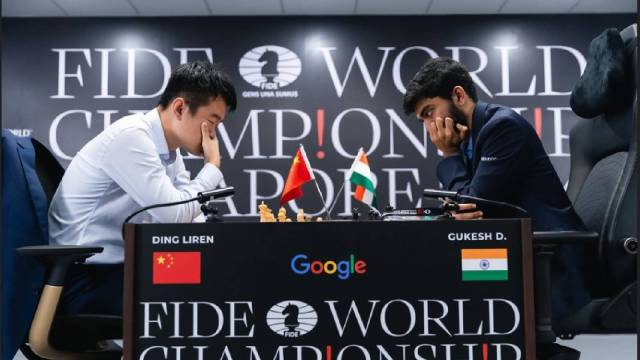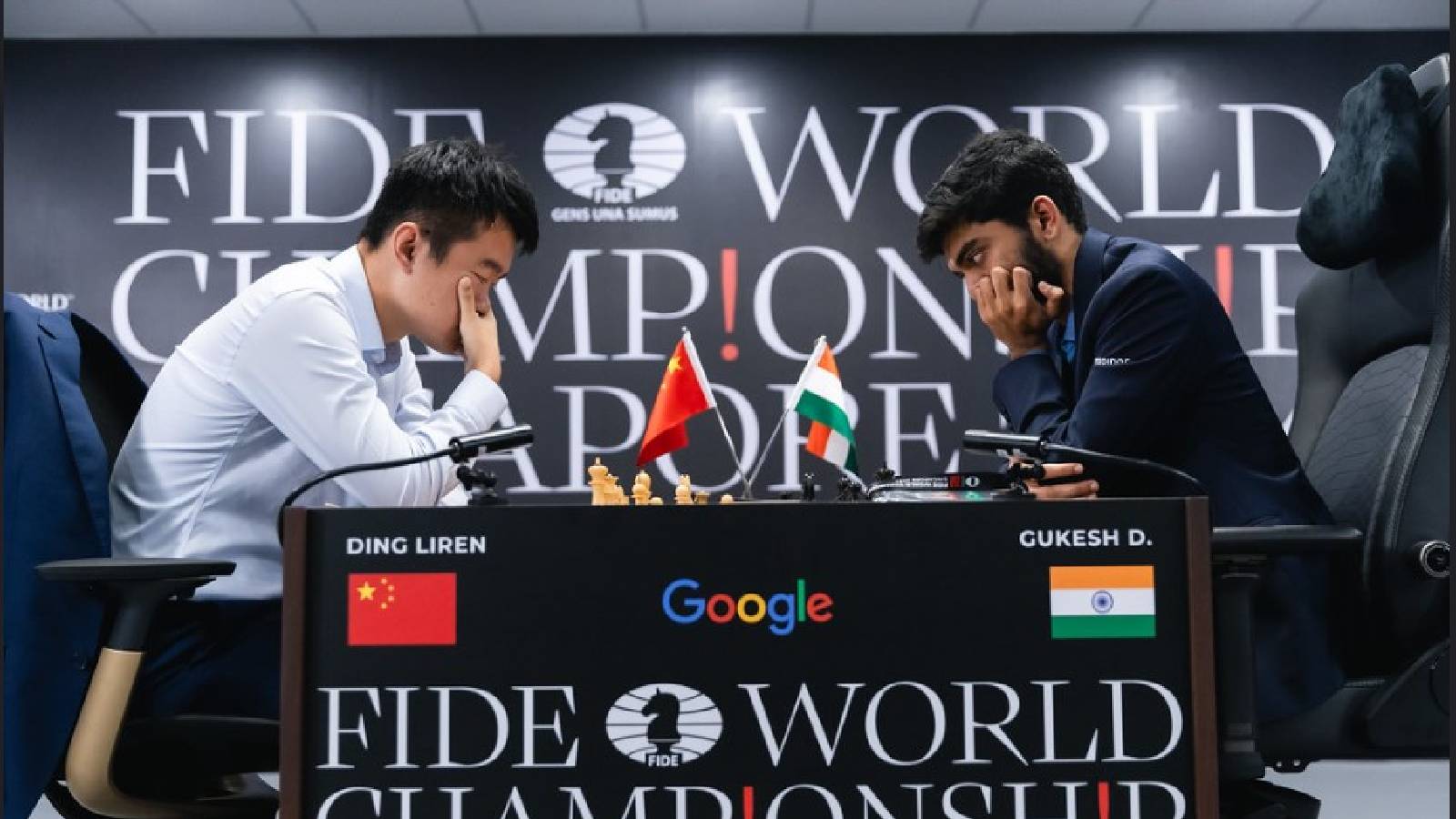
Despite losing Game 12 of the World Chess Championship, Indian challenger D Gukesh still has an even chance of claiming the crown, provided he can settle the matter in the next two games, a mathematical prediction model indicates.
World Champion Ding Liren won Game 12, regaining parity with his 18-year-old opponent at 6-6 in the best-of-14 match. If the scores are still deadlocked after the remaining two games, the contest will head into tie-breaks, where faster versions of rapid and, later blitz, if necessary, will come into play.
Despite the latest setback for Gukesh, Mehmet Ismail — a Ph.D in economics from Maastricht University and a lecturer at King’s College, London who makes predictions for big-ticket chess events — gives both players a 50-50 percent chance to win in regulation time. In June, Ismail had done a similar data-based prediction for The Indian Express, where he had predicted that the overall chance of Gukesh winning the title was 63.4 percent if the contest was decided in the classical portion itself. His prediction that Ding holds a 65 percent chance of winning the title in tiebreaks remains the same.
Back then, Ismail had used data points such as ELO ratings and performance ratings for the past one year. But since the world championship started, Ismail used only data from the 12 games in Singapore to arrive at his fresh predictions. He explains that in June, there was still uncertainty regarding Ding’s form leading into the world championship. But after these 12 games, those questions have been answered.
“At this stage of the World Championship match, it is more relevant to assess the players’ performance during the match itself rather than focusing on their pre-match form. While Ding appeared vulnerable before the event, he has demonstrated his ability to win games and defend challenging positions. Gukesh, on the other hand, has proven to be fearless, consistently pressing in equal positions. Given their current performances, both in terms of scores and move quality, the players have equal chances of winning the title outright,” Ismail told The Indian Express after Ding’s win in Game 12.
Tables turned
At the ongoing world championship, the official FIDE YouTube broadcast has relied on predictions from Leela Zero, the AI-based neural network chess model to assess the chances of both players winning a particular game. But Ismail’s predictions are centred around the end result: who becomes world champion.
To arrive at his current prediction, Ismail first used chess engine Stockfish to get critical data points such as ‘average missed points per game’, ‘game intelligence’ and ‘move quality’ for both players at the world championship. Then he used his statistical model to come to the conclusion that both players right now have an equal chance.
“According to the top chess engine Stockfish, both players have performed at an identical level during the match, despite there being four decisive games. Their average missed points per game was only 0.4, indicating that their in-game mistakes totalled less than making a significant blunder per game. This high level of accuracy makes the match the second-most accurate World Championship match in history, surpassed only by the legendary 1995 encounter between Garry Kasparov and Viswanathan Anand,” said Ismail, who was behind the Game Theory Corner at the Norway Chess tournament this year, where he looked at multiple factors to come up with the probability of each player winning the event after every round.
Ismail has gained popularity on X since the world championship began, particularly after both players were asked about his statement that this was one of the most accurate matches in world championship history. Both Gukesh and Ding were surprised by that analysis, using it to make self-deprecating jokes about how many mistakes they had been making.
Interestingly, in his conversation with The Indian Express in June, Ismail had predicted: “If Ding feels that he is not up for it, he’ll grind out draws (in the 14 classical games).”
That is the strategy that Ding has employed in Singapore: trying to settle for draws even when holding a slight edge.


